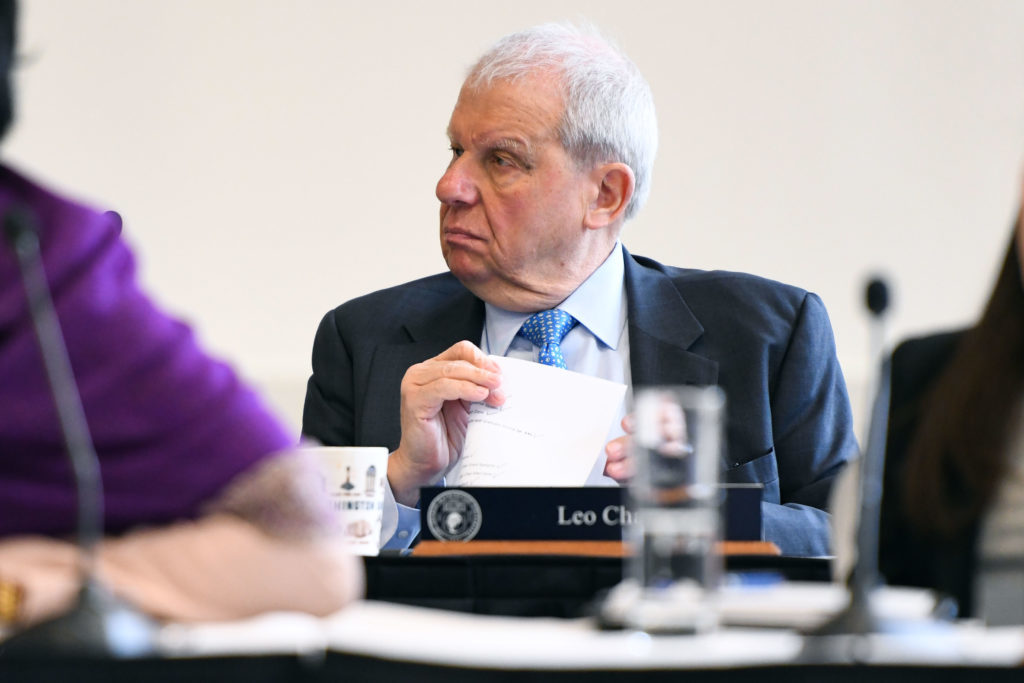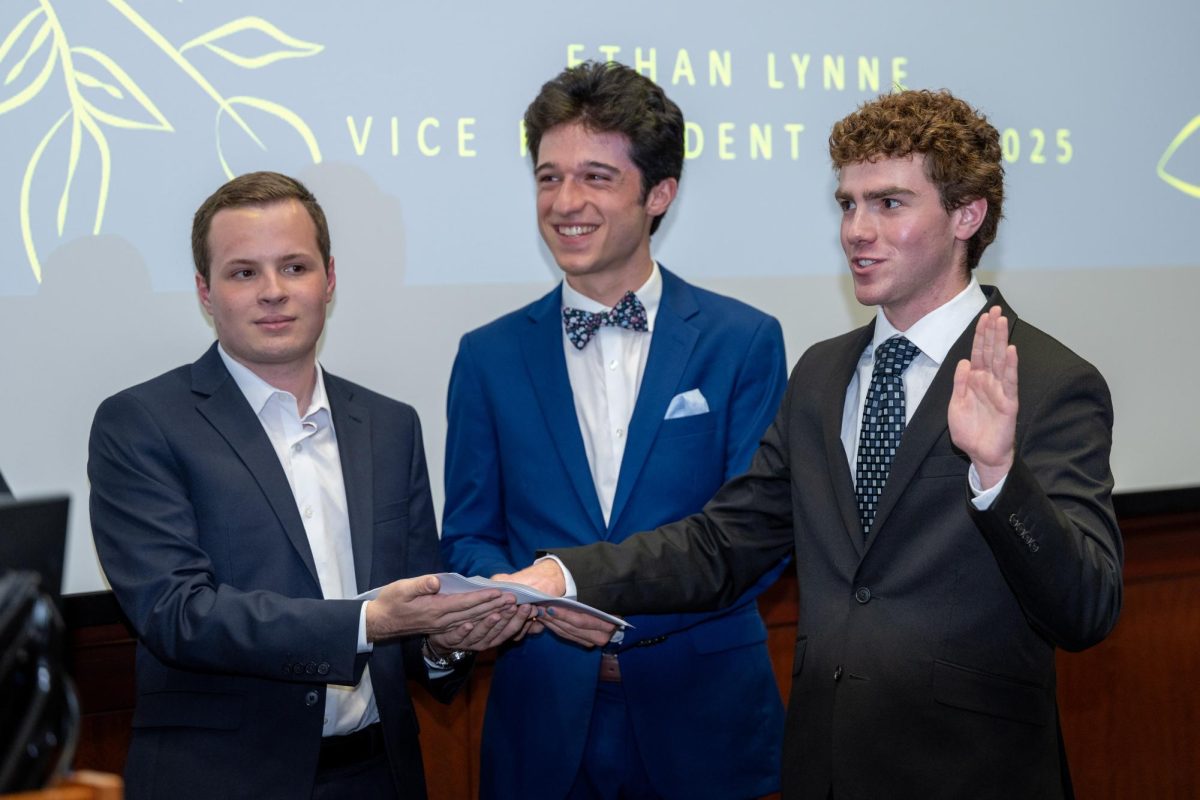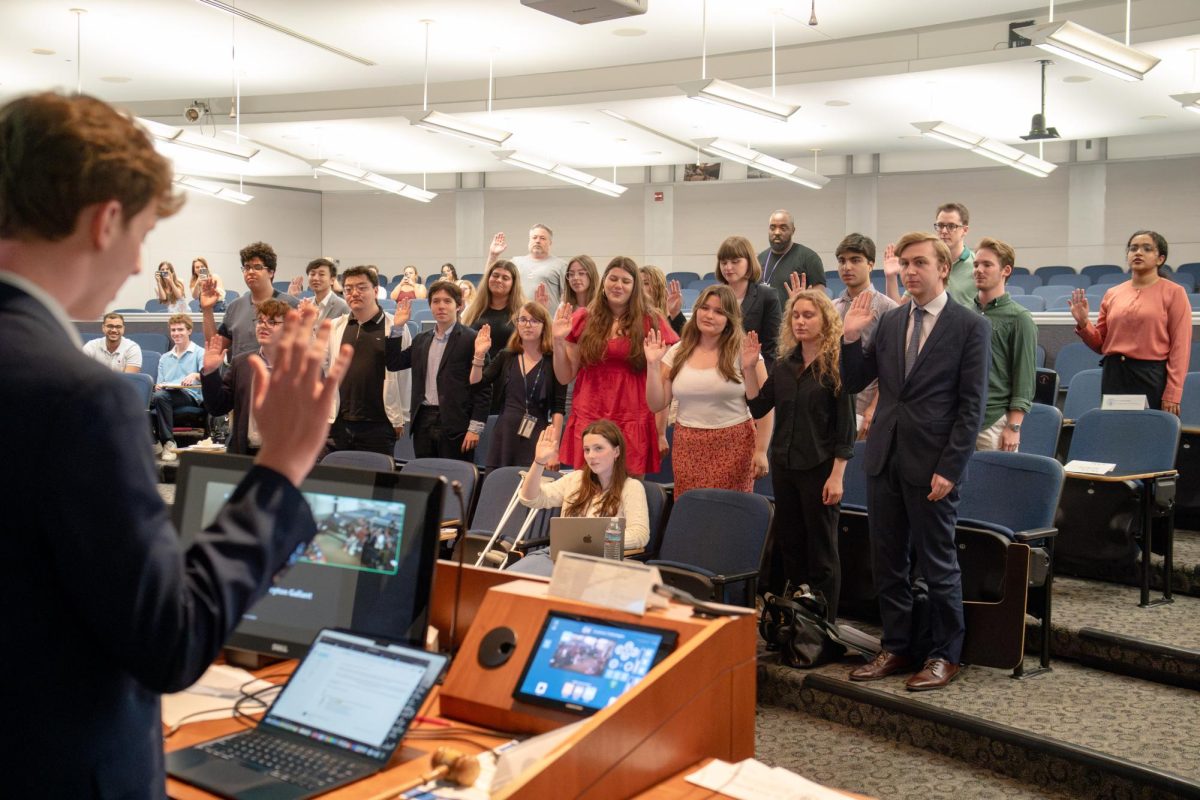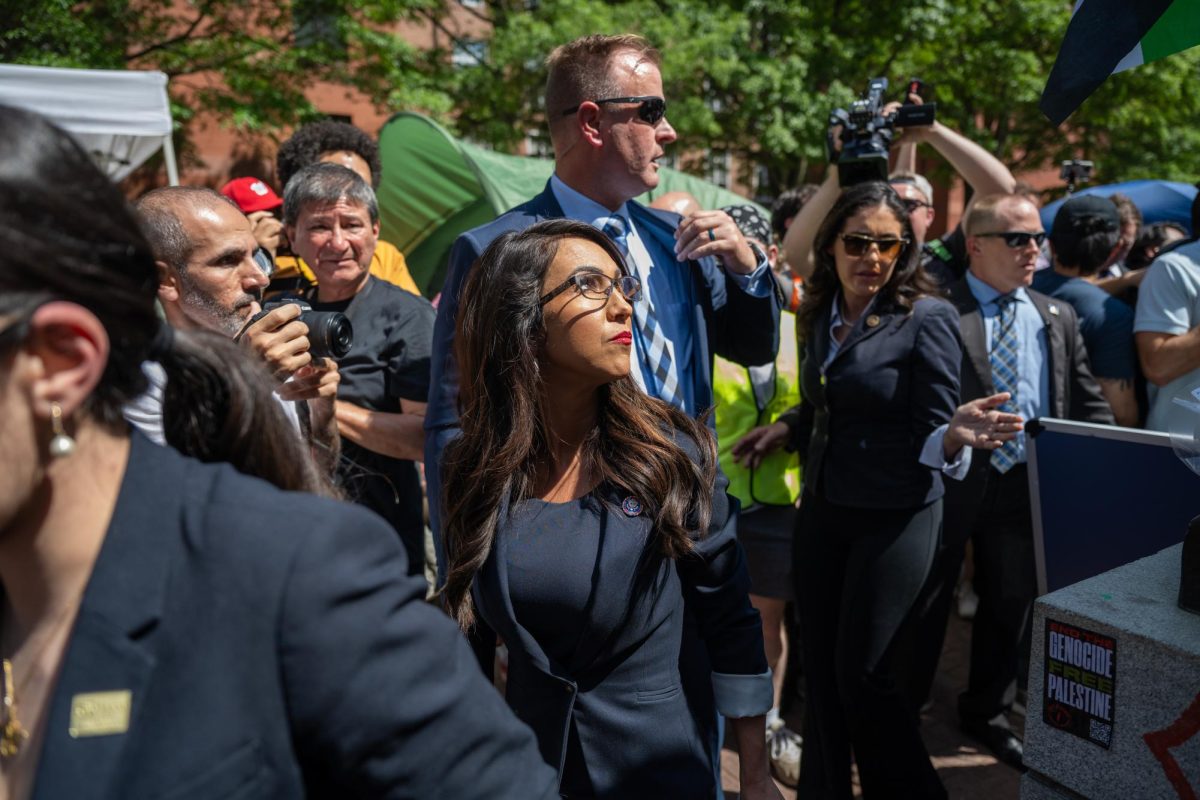Updated: April 14, 2019 at 8:43 p.m.
Officials want faculty to weigh in about the state of research at GW.
Vice President for Research Leo Chalupa and Provost Forrest Maltzman will co-chair a new task force on faculty research, which will include a group of 10 to 15 faculty from across disciplines who will be selected by March. Officials and faculty say the committee – to be fully launched by May – will review all aspects of research at GW, working to improve long-running faculty concerns about applying for grants and conducting experiments.
Chalupa, who leads GW’s research office, said the task force will conduct a broad examination of processes for hiring student assistants, applying for visas for international researchers and reimbursing travel expenses – systems that faculty said don’t run as efficiently as they should.
“The task force is going to be charged with evaluating our entire research ecosystem, not just this office but everything related to research,” he said in an interview.
“We cannot have the administration review its own activity because then we make the fox guard the hen house.”
Although the team will be predominately made of faculty who have received research grants, Chalupa said the group will be diverse in the disciplines represented and have a mix of senior professors and new faculty members. He added that he wants every school to be represented in the group, and that he has already reached out to several faculty members that he hopes will serve on the task force.
Chalupa said it is an ideal time to re-evaluate the University’s research focus as a new University president continues to lay out his vision for GW.
University President Thomas LeBlanc has made improving the University’s research standing across disciplines a top priority. He announced last month that funding for the University Facility Fund, an internal resource that helps faculty start projects, had been fully restored following budget cuts as a signal of officials’ commitment to research.
“We want to make things as good as possible, as easy as possible for our faculty to be competitive, and then when they get the grants to make it so that the whole thing about setting up labs, buying equipment, hiring people, covering expenditures, is seamless,” Chalupa said.
Research has been a major University focus for the last several years. Former University President Steven Knapp worked to raise GW’s research profile, which has attracted more federal funding in recent years.
Kausik Sarkar, a professor of mechanical and aerospace engineering and chair of the Faculty Senate’s research committee, said the task force will encourage communication between faculty and administrators and combine the skillsets of both Maltzman and Chalupa to ensure that faculty input is integrated in major decisions.
“If we just work with OVPR, it doesn’t work,” Sarkar said. “It is not just one office that really controls this, every little piece has to work together, and sometimes the problem lies between the two silos.”
Sarkar said the Faculty Senate’s research committee will help select professors to serve on the task force and that the team may benefit from including research deans who have institutional knowledge, especially when looking for new avenues of funding.
Competition for federal grants has grown increasingly intense over the last few years, forcing faculty to pursue new avenues of funding like cooperations.
Faculty said the task force could force the University to move away from a top-down approach, where officials make major research decisions without the input of faculty – a method they said officials have preferred in recent years.
Harald Griesshammer, an associate professor of physics and a member of the Faculty Senate, said the task force should examine how to streamline processes like applying for grants and patents and getting permission to use human subjects in projects. He said there is unnecessary “friction” in many of those processes that affect research.
Turnover in the human research officer last semester forced faculty to wait weeks to get approval for projects with human subjects.
There needs to be a larger culture change where the administration prioritizes the quality of research over the amount of money it brings in, Griesshammer added.
“Anyone who was instrumental in the old system has no credibility left as GW recognizes that the value of research is not simply measured by dollar amounts, that administrators cannot summarily belittle research of some fields and that administrators should facilitate research, not pick winners and losers,” he said.
He said the task force will first need to conduct an open survey of faculty to assess the climate surrounding faculty-led research and ensure that faculty can voice their concerns without fear of reprisal.
“We cannot have the administration review its own activity because then we make the fox guard the hen house,” Griesshammer said.
Tyler Anbinder, a professor of history, said faculty have been hesitant to voice their concerns about OVPR because they’re worried that their opinions will prevent them from getting funding.
“The impression I get is that one of the factors that keeps faculty from speaking up about this is they fear repercussions,” he said. “They fear that if they criticize the Office for the Vice President for Research that that’s going to hurt their chances in either getting a grant or getting a grant administered.”
“Too often universities have used unreliable or biased data from external consultants to set cookie-cutter strategies for research measurement and enhancement.”
Anbinder said the task force needs to investigate why there is so much turnover for those in charge of administering grants – something that makes tasks like hiring assistants and paying bills more difficult.
In 2015, faculty lamented that turnover in research project support staff prevented the University from reeling in grant money.
Last year, GW worked to improve the student employment process amid complaints that it was overly complex and took too long to complete.
Jamie Cohen-Cole, an associate professor of American Studies, said the task force should be a faculty-led effort that allows professors to address challenges unique to GW.
“Too often universities have used unreliable or biased data from external consultants to set cookie-cutter strategies for research measurement and enhancement,” he said in an email.





